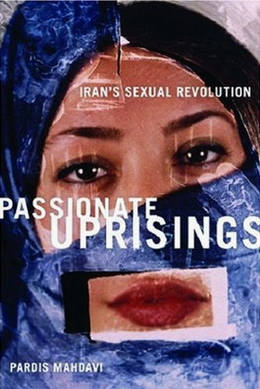Many US-anthropologists protested against the Vietnam war in the 60s. Why have anthropologists been so reluctant to engage with the “immense tragedy” and “waste of resources by our governments” in the Iraq war, Antonius C.G.M. Robben and Marshall Sahlins ask in the current issue of Anthropology Today.
There has been much debate and protests regarding the embedding of anthropologists in Human Terrain Teams of the U.S.Army, but not about the consequences of the war for the people in Iraq. There is hardly any independent anthropological research going on in Iraq. Of the 1800 panels (11,000 papers) at the annual meetings of the American Anthropological Association (AAA) between 2006-2008, Robben writes, only one has dealt directly with the Iraq War:
We have been far too timid on the issue of the Iraq war. Rather than tackling the issue head-on, we have dealt with it on the back foot, as an issue of ethical concerns about our professional conduct in military and intelligence matters. What of the broader issues concerning Iraq under occupation and the plight of its peoples? Given the immense human and material cost of this war, why has this not been at the forefront of our professional focus?
Robben criticizes the AAA for not acting independently from the US government:
What is disconcerting is how the AAA appoints the members of the Commission on the Engagement of Anthropology with the US Security and Intelligence Communities on the basis of ‘balancing’ interests between individuals employed in intelligence-gathering capacity and independent anthropologists engaged in bona fide academic activity. Why should this commission include members from the security establishment at all?
Surely, if anthropology is to remain an independent academic discipline, it must insist on populating these important bodies with independent anthropologists free of any personal involvement in such matters. In this case, we can speak of imbalance, for two militarized anthropologists on this commission outweigh the one person representing the critics. It is disconcerting to see how panels at the AAA’s conferences also tend to have a culture of aiming for such ‘balance’.
During the Vietnam-war, anthropologists organized teach-ins, an innovation by famous anthropologist Marshall Sahlins. According to Anthropology Today,
the teach-in … unlike the strike, is a constructive process in which participants bring all their knowledge of a critical issue of public concern to the university, with the aim of generating publicity and action. The teach-in became a powerful instrument in this sense, helping to shift public opinion and eventually to change government policy on the Vietnam war.
In Anthropology Today, Sahlins quotes a footnote in a report by the a Senate Judiciary subcommittee on national security about the beginnings of the teach-ins:
The teach-in movement was born at the University of Michigan after heavy criticism of an original plan for a 1-day faculty ‘work moratorium’ to protest U.S. policies in Vietnam. The notion of a ‘strike,’ while sufficiently dramatic, was so controversial that it diverted attention away from the basic aim of the protest group. During a meeting on the night of March 17 they were batting around alternative ideas […] when Anthropologist Sahlins suddenly interrupted the discussion: ‘I’ve got it. They say we’re neglecting our responsibilities as teachers. Let’s show them how responsible we feel. Instead of teaching out, we’ll teach in – all night.’
Sahlins wonders:
Why is there not the same anti-war agitation today? The absence of a national military draft is often given as the major reason. (…) Among the other significant differences between then and now, consider only the striking fact that at present business courses constitute by far the most popular subject matter of the higher learning in America. Where the mobilization against the Vietnam War drew on a large cadre of already existing rebels without a cause, the Iraq war came upon us as a cause without the rebels. (That’s James Dean the movie, crossed with Lévi-Strauss the books.)
According to Antonius C.G.M. Robben there are lots of ways for anthropologists to take action:
We must find ways to engage issues concerning Iraq objectively and independently, without being railroaded into a partisan security agenda. Now that we have blogs and online communities, teach-ins and university protests are no longer the only instruments of opposition.
And even if fieldwork were impossible, we can surely weigh up and analyse the fragmentary information available and draw on a comparative anthropology of violence and social suffering to help make sense of current events in Iraq. Anthropologists such as Nadje Al-Ali, Keith Brown, Steven Caton, Matthew Gutmann, Allen Feldman and Catherine Lutz have done so.
The adversarial and partisan agendas of Minerva and the Human Terrain initiatives must not be the central focus of our professional engagement at our annual conferences, for they are recipes for creating security-speak elites with an interest in perpetuating war rather than finding solutions.
We must now strive to engage and disseminate our own independent anthropological studies of the military campaigns undertaken as part of the global ‘war on terror’. The teach-in remains a relevant option today, especially now that we have social networking sites such as Facebook to help.
Unfortunately, the articles are available for subscribers only.
SEE ALSO:
Bush, “war of terror” and the erosion of free academic speech: Challenges for anthropology
American Anthropologists Stand Up Against Torture and the Occupation of Iraq
Fieldwork reveals: Bush administration is lying about the “war on terror” in the Sahara
Cooperation between the Pentagon and anthropologists a fiasco?
Many US-anthropologists protested against the Vietnam war in the 60s. Why have anthropologists been so reluctant to engage with the "immense tragedy" and "waste of resources by our governments" in the Iraq war, Antonius C.G.M. Robben and Marshall Sahlins ask…


